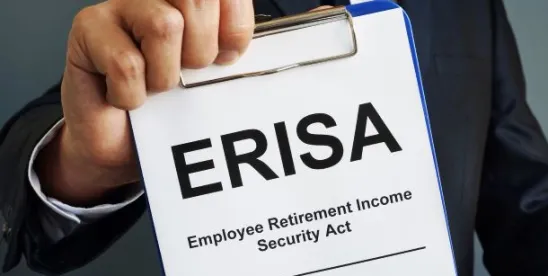Employers who sponsor and maintain retirement plans on behalf of their employees and who engage investment advisors to provide investment-related advice to participants may take comfort in knowing there is a new prohibited transaction exemption under the Employee Retirement Income Security Act of 1974, as amended (“ERISA”) and the Internal Revenue Code (the “Exemption”) designed to protect plan participants. Department of Labor (“DOL”) PTE 2020-02, Improving Investment Advice for Workers & Retirees, became effective on February 16, 2021. On April 13, 2021, the DOL issued implementing guidance further explaining the protections afforded under the Exemption and how to realize these protections.
The Exemption focuses on investment advisors and is designed to protect the interest of participants more systematically in retirement plans and makers of individual retirement accounts (IRAs) (collectively “Retirement Investors”). It applies when such Retirement Investors engage with investment advisors who are providing fiduciary advice over the management of retirement plan and/or IRA assets for a fee or seek rollover distributions. With these transactions, there is the potential for the investment advisor to steer participants to investments providing the advisor with increased compensation as a result of their investment-related advice, which would implicate the prohibited transaction rules of ERISA and the Internal Revenue Code. The DOL weighed the value of that advice against the risks and concluded that an exemption from the prohibited transaction rules was needed – with guardrails.
The Exemption very squarely places the responsibility for compliance with its requirements on outside investment advisors. The Exemption regulates the conduct of “Investment Advice Fiduciaries” who provide investment and/or rollover advice. “Investment Advice Fiduciaries” are investment advisers, broker-dealers, banks, and insurance companies and their employees, agents, and representatives. An important aim of the Exemption is to make sure that Investment Advice Fiduciaries adhere to stringent standards designed to ensure that their investment recommendations reflect the “best interest” of Retirement Investors.
In order to rely on the Exemption, besides other requirements, Investment Advice Fiduciaries must provide certain disclosure and meet specified standards of conduct.
- Disclosure Requirements: Investment Advice Fiduciaries must (i) acknowledge their fiduciary status under ERISA in writing and (ii) disclose the investment related services being provided and any material conflicts of interest they may have in providing those services.
- Standards of Conduct: Investment Advice Fiduciaries must adhere to the “Impartial Conduct Standards” which require them to (i) investigate and evaluate investments, advise, and exercise sound judgment as knowledgeable and impartial professionals would (i.e., their recommendations must be “prudent”), (ii) act with undivided loyalty to Retirement Investors when making recommendations (in other words, they must never place their own interests ahead of the interests of the Retirement Investor, or subordinate the Retirement Investor’s interests to their own), (iii) charge no more than reasonable compensation and comply with federal securities laws regarding “best execution,” and (iv) avoid making misleading statements about investment transactions and other relevant matters.
For employers that maintain retirement plans for their employees, the plan fiduciaries are responsible for ensuring that their retirement plans comply with the requirements of ERISA and the Internal Revenue Code. This includes a duty to make the prudent selection of investment advisors and monitor these service providers. Beyond this, employers are not directly impacted by the Exemption.
The prohibited transactions rules of ERISA and the Internal Revenue Code are intricate and punitive when violated. Exemptions like PTE 2020-02 are adopted to balance these technical requirements and real-world transactions involving ERISA plan assets that should be permitted to occur in carefully defined ways to promote otherwise meritorious activities. As an employer, plan sponsor and fiduciary, your retirement plan(s) necessarily implicate these technical rules.




 />i
/>i

